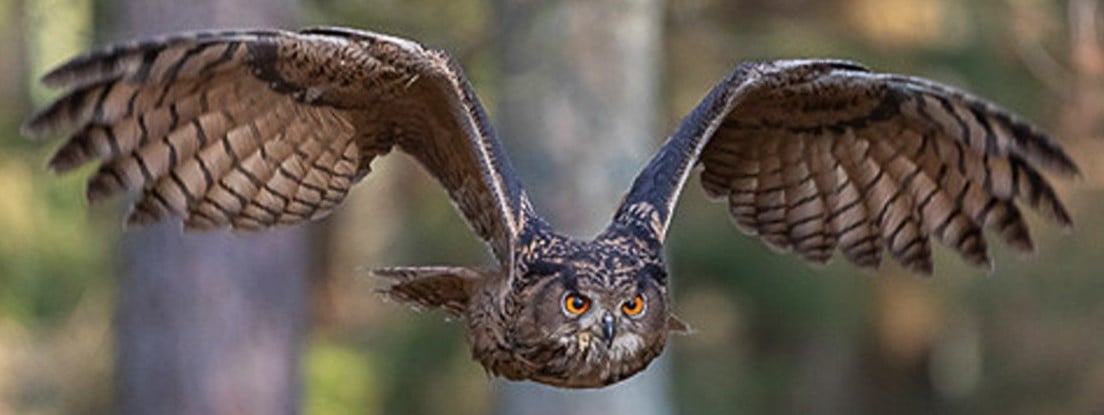Superbowl
For owls that are superb.

US Wild Animal Rescue Database: Animal Help Now
International Wildlife Rescues: RescueShelter.com
Australia Rescue Help: WIRES
Germany-Austria-Switzerland-Italy Wild Bird Rescue: wildvogelhilfe.org
If you find an injured owl:
Note your exact location so the owl can be released back where it came from. Contact a licensed wildlife rehabilitation specialist to get correct advice and immediate assistance.
Minimize stress for the owl. If you can catch it, toss a towel or sweater over it and get it in a cardboard box or pet carrier. It should have room to be comfortable but not so much it can panic and injure itself. If you can’t catch it, keep people and animals away until help can come.
Do not give food or water! If you feed them the wrong thing or give them water improperly, you can accidentally kill them. It can also cause problems if they require anesthesia once help arrives, complicating procedures and costing valuable time.
If it is a baby owl, and it looks safe and uninjured, leave it be. Time on the ground is part of their growing up. They can fly to some extent and climb trees. If animals or people are nearby, put it up on a branch so it’s safe. If it’s injured, follow the above advice.
For more detailed help, see the OwlPages Rescue page.
view the rest of the comments

Americans are goofy af "criss cross applesauce" bitch that don't even rhyme
uk we say "cross legged" or "cross leggéd" if you're feeling Shakespearean
Fun fact: in Hungarian we say "Turkish sitting" (törökülés).
Boring fact: it's also "sit like a Turk" or "sit the Turkish way" in Russian (сидеть по-турецки).
Now I'm curious what they say in Turkish.
UPD: me and @[email protected] are referring to the Lotus position which is what it is called in Turkish.
In German we call it "tailor's seat" (Schneidersitz).
I'm always feeling Shakespearean
American accents seem to prefer the Shakespearean version: "Wicked", "Dogged" but not "Curved" for whatever reason. Maybe it has to do with the tendency for the word to be used as a verb. "Curved" is usually an adjective but sometimes a verb, while "Wicked" is nearly always an adjective.
I think it's often to distinguish between two words that would otherwise be homophones.
There's "wick'ed" (two syllables) as in "something wicked this way comes" and "wicked" (one syllable) as in "Grady wicked away the spilled avocaat from Jack Torrence's jacket with a towel".
There's "dogg'ed" (two syllables) as in "dogged perseverance", but also "dogged" (one syllable) as in "Javert dogged Valjean for many years".
I don't have one for "curved" though. I think i've only ever heard it as one syllable, except for maybe in cases where poetic meter requires use of an "èd". Although, I think "curv'ed'ly" has three syllables, but I might be making that up. Typing up this comment has given me semantic satiation.
But, yeah, I think you're right about the adjective vs verb thing. The two-syllable examples are adjectives, while the one-syllable examples are verbs. Except for curved...